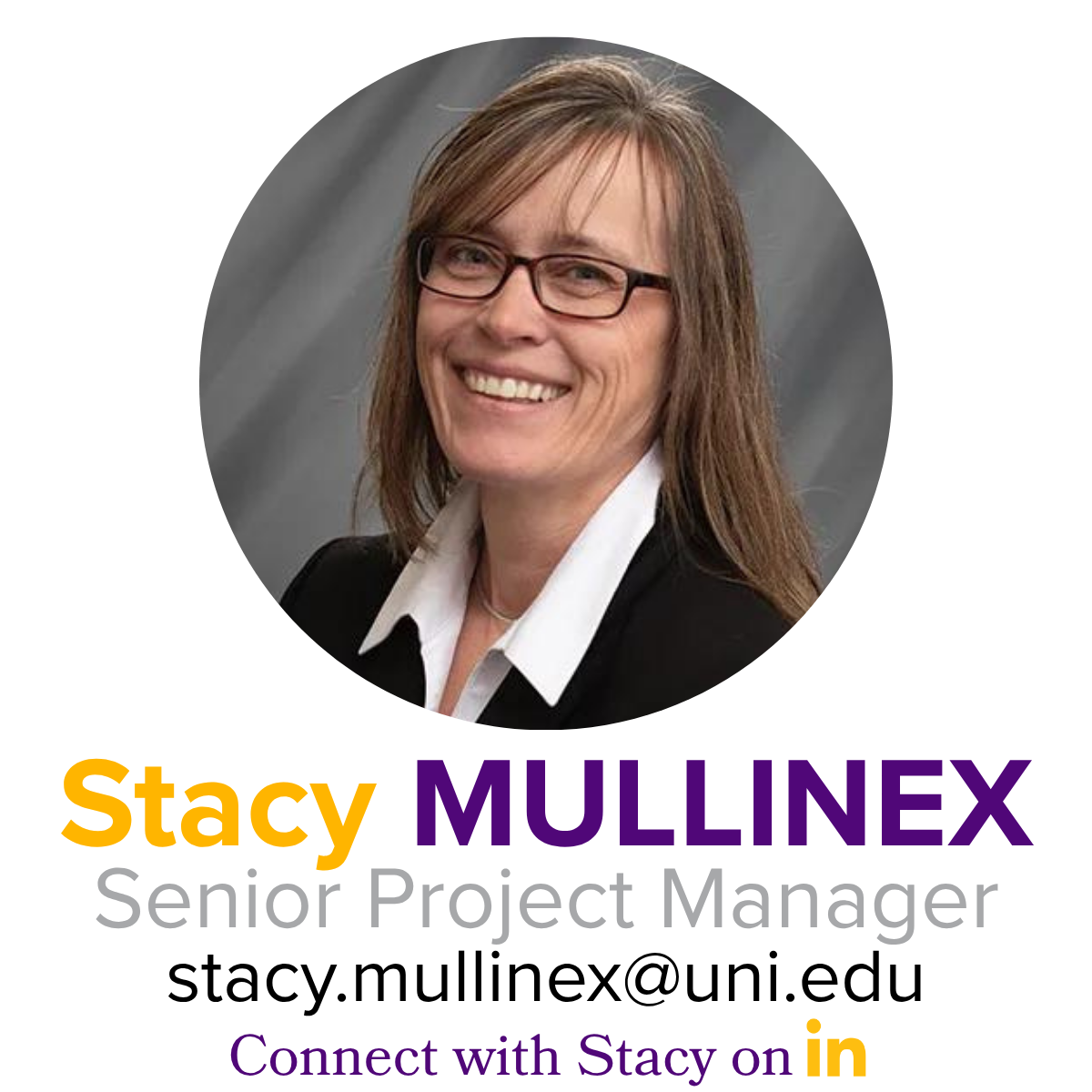Employee Ownership Success Stories

At the IA-CEO, we believe the stories behind Iowa's employee-owned businesses are some of the most inspiring examples of resilience, innovation, and shared prosperity. Through Employee Stock Ownership Plans (ESOPs), worker cooperatives, Employee Ownership Trusts (EOT), and other forms of broad-based employee ownership, these companies have not only redefined business success but have also empowered their employees as true stakeholders.
On this page, you’ll find success stories of Iowa companies that have embraced employee ownership. These businesses represent a diverse range of industries and approaches, but they all share a common commitment to fostering a culture of ownership, collaboration, and long-term growth. Whether transitioning to employee ownership, managing a business as an ESOP, or becoming an engaged employee-owner, their journeys highlight the transformative power of employee ownership in shaping strong, sustainable companies.
Explore these stories to see firsthand how employee ownership is making a difference across Iowa and beyond.
Do you have a story to tell? Share it below.
Folience
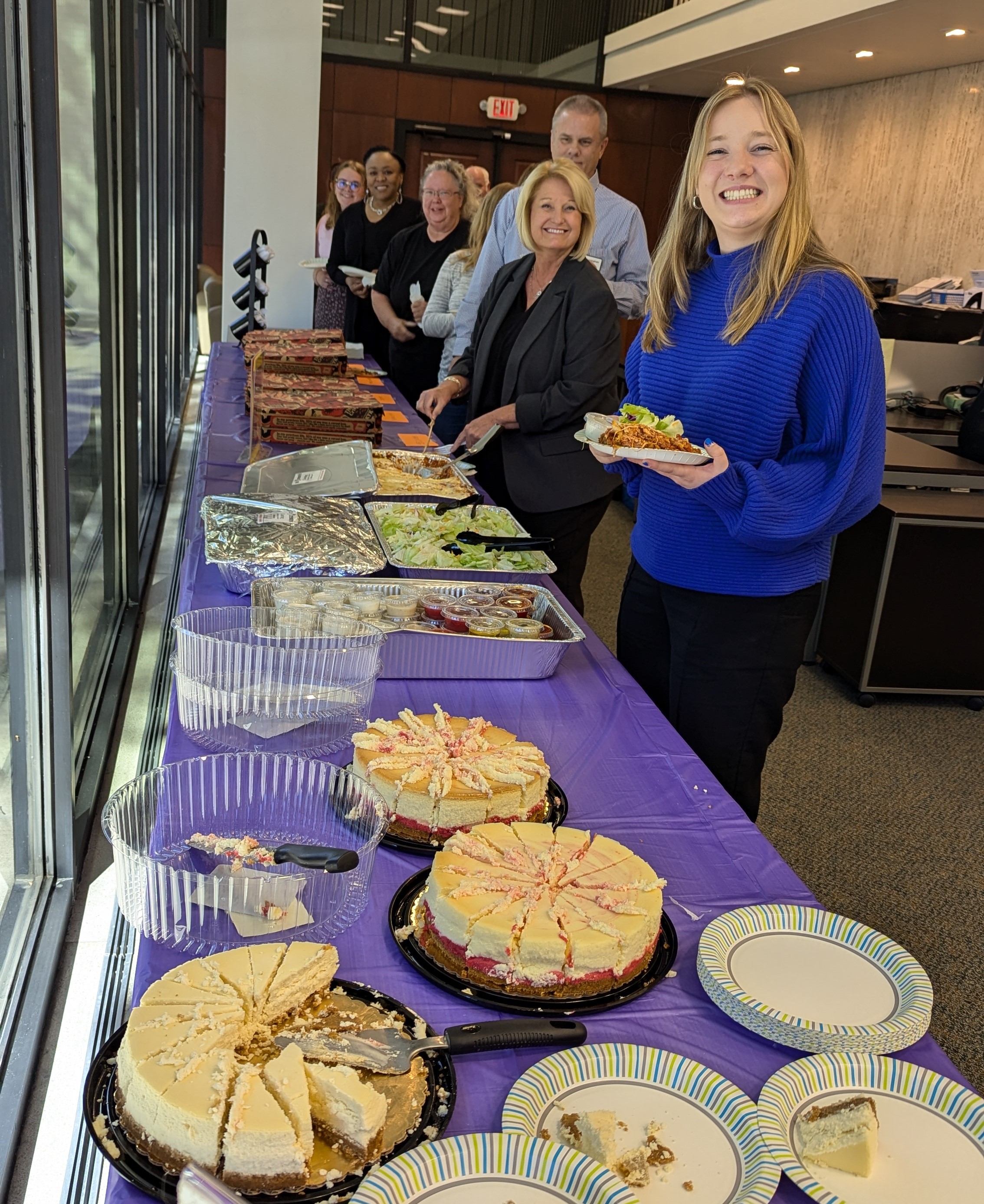 What factors or events led your company to explore and ultimately choose the path of becoming an ESOP?
What factors or events led your company to explore and ultimately choose the path of becoming an ESOP?
- The Gazette ESOP was originally formed in 1986 and became 100% employee-owned in 2012. The ESOP provided an ownership transition for the family while preserving the legacy of The Gazette brand and local media. Folience was established in 2017, shortly after The Gazette had sold KCRG TV-9. The Folience model was established to create a 100% employee-owned portfolio company where diversity of businesses, coupled with the power of employee-ownership, unites the common interests of employees with the interests of the company. The concept is to create value in long-term sustainable entities while using diversity to dampen the impacts of economic volatility.
How do you envision employee ownership contributing to the future of work in your industry and beyond?
- Today’s employees want something more in the workplace. The data shows people want more than a job. Employees want to feel part of something, a sense of belonging. Employee-ownership provides that opportunity for today’s workforce. I believe employee-ownership will continue to grow and the workforce desires for the sense of belonging grows. It is the perfect union of matching the wishes and desires of the workforce to those of the company, while providing financial well-being for both.
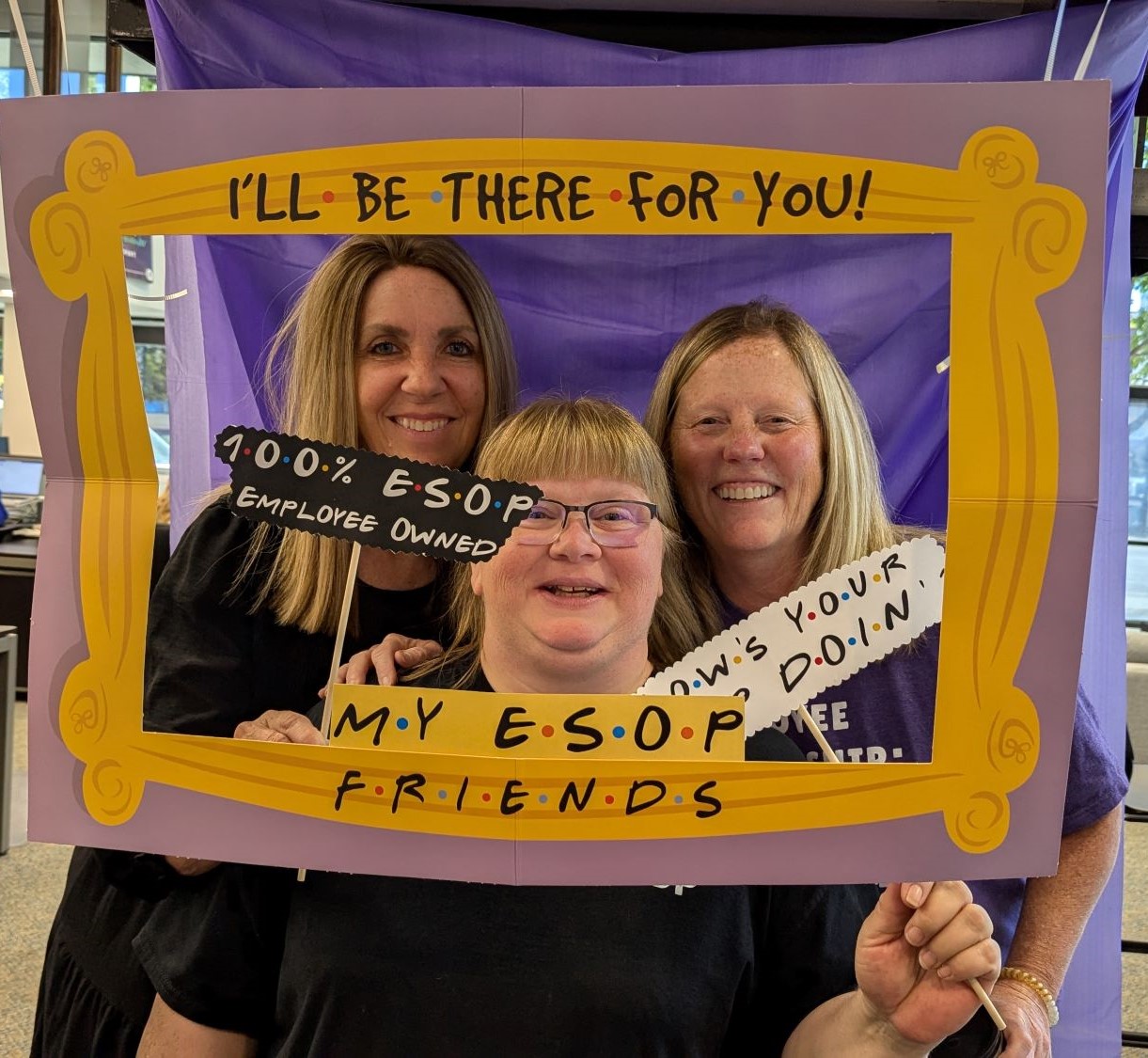 What advice would you give to leadership teams about preparing employees for the shift to an employee-owned structure?
What advice would you give to leadership teams about preparing employees for the shift to an employee-owned structure?
- Employee-ownership does not imply a great culture. Culture is still a reflection of leadership. Employee-ownership puts an arrow in the quiver that other companies do not have. It is a powerful tool to help explode engagement and align the interests of employees and the company. It is up to leadership to best utilize the ESOP advantage.
- Tom Pientok - President & CEO
Prairie Capital Advisors, Inc.
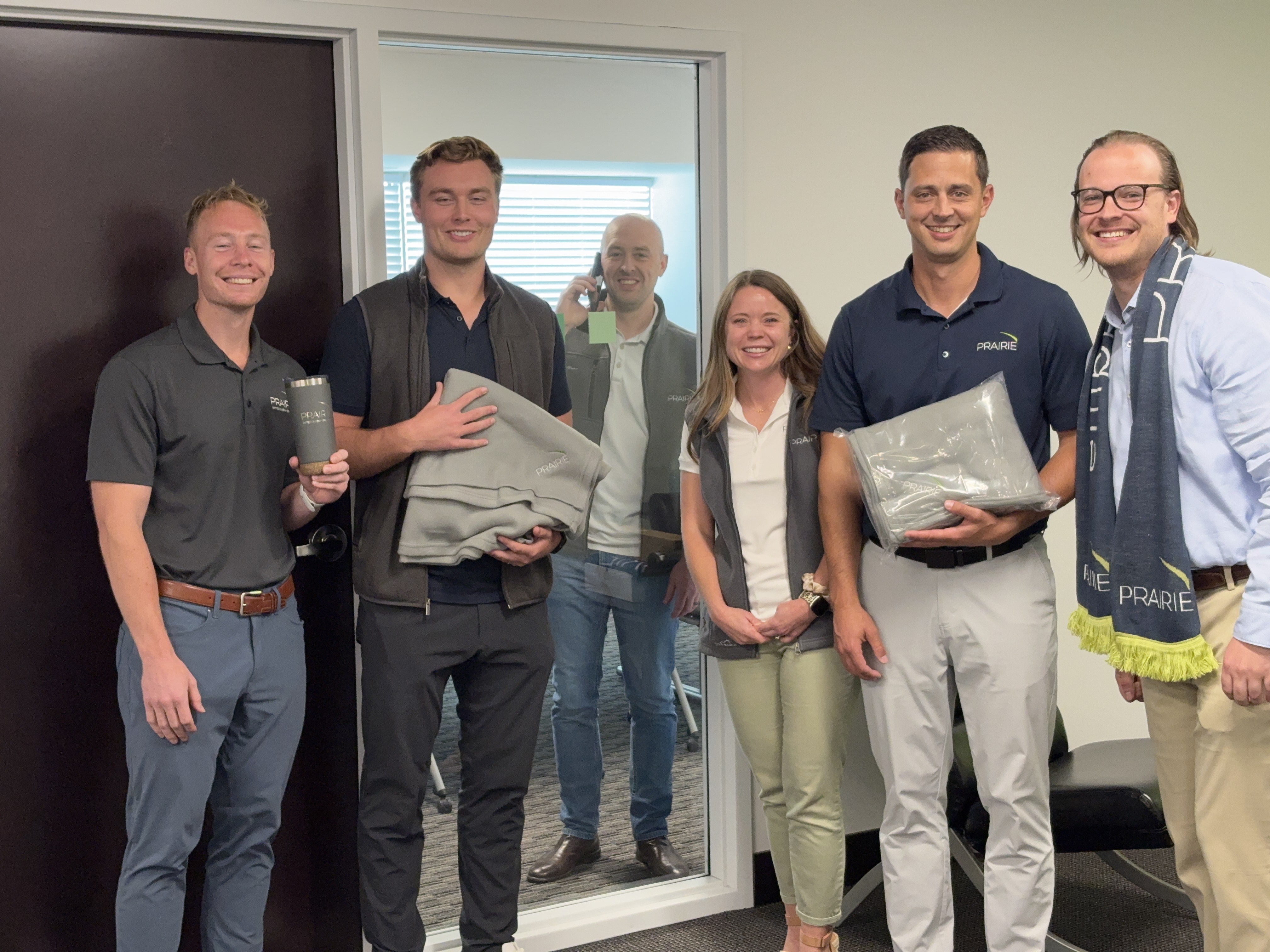 What factors or events led your company to explore and ultimately choose the path of becoming an ESOP? Prairie Capital Advisors’ co-founders, Ken Serwinski and Bob Gross knew the benefits of an ESOP due to the work that Prairie does every day. Once our firm was large enough, we transitioned to an ESOP structure in 2012.
What factors or events led your company to explore and ultimately choose the path of becoming an ESOP? Prairie Capital Advisors’ co-founders, Ken Serwinski and Bob Gross knew the benefits of an ESOP due to the work that Prairie does every day. Once our firm was large enough, we transitioned to an ESOP structure in 2012.
What are the most noticeable changes you've experienced in your company’s culture, performance, or employee engagement since becoming employee-owned? We have an “we are all in this together” mentality. We have a strong culture and we make sure when we hire new staff that they meet our culture fit.
How do you envision employee ownership contributing to the future of work in your industry and beyond? We’ve seen some larger professional service firms adopt the ESOP structure in recent years. With the silver tsunami and many baby boomers retiring, employee ownership should be an alternative that business owners should be educated on. Prairie is trying to do that with our thought leadership resources.
What key lessons did you learn during your transition to employee ownership that other companies should know? Continuous education on the ESOP is needed.
What factors should companies carefully evaluate before deciding to become an ESOP or employee-owned business? Ensuring the company has a strong business model and a strong management team will help the company successfully transition to an ESOP.
What advice would you give to leadership teams about preparing employees for the shift to an employee-owned structure? Educate yourselves and talk to others that have gone through it.
Stellar
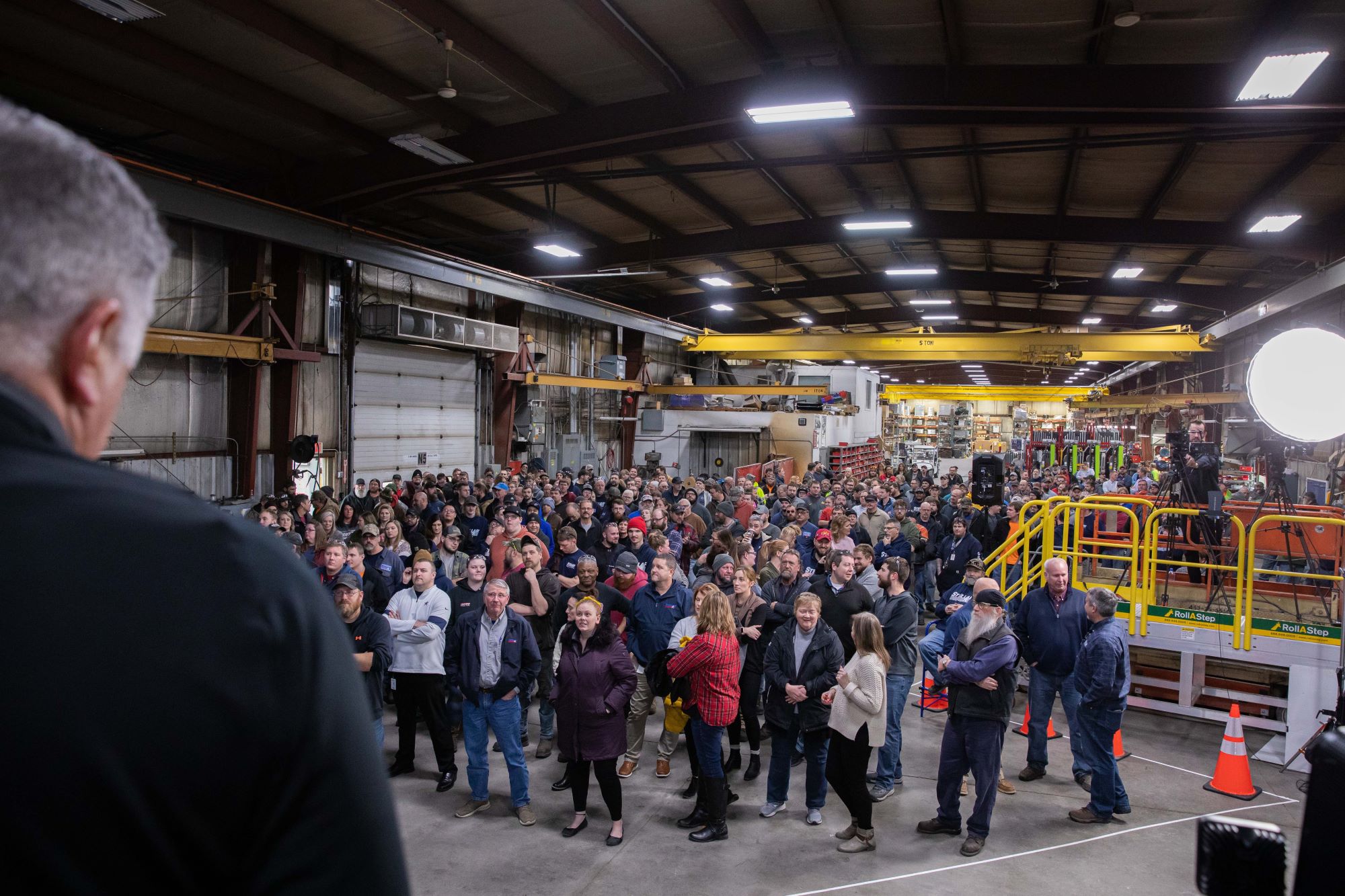 Being 100% employee-owned has fostered a culture of engagement at Stellar where each employee-owner is empowered to think and act like an owner because we are owners. The ownership mentality drives our team to be successful with each team member knowing they have the freedom to innovate to enhance productivity. Because of the open book management style that Stellar embraces, owners know how to win and what happens when we win – we are not making somebody else wealthy, as employee-owners we are giving ourselves the opportunity to build long-term wealth.
Being 100% employee-owned has fostered a culture of engagement at Stellar where each employee-owner is empowered to think and act like an owner because we are owners. The ownership mentality drives our team to be successful with each team member knowing they have the freedom to innovate to enhance productivity. Because of the open book management style that Stellar embraces, owners know how to win and what happens when we win – we are not making somebody else wealthy, as employee-owners we are giving ourselves the opportunity to build long-term wealth.
The most important thing to start fostering an ownership culture is clear and consistent communication along with continually educating new employee-owners on what it means to be an owner. Changing to an ownership culture will take time and persistence, often new owners will not see the value of the ESOP or ownership until they receive their first ESOP statement. Continually tie everything that you do in the business back to employee-ownership and empower your team to think and act like owners by giving them the freedom to help eliminate waste and cut costs in their own job. Make sure you celebrate those wins together and show the impact the wins made on your business goals. We would highly encourage you to attend an employee-ownership conference, the employee-ownership world is unlike any other in business and you will find many people who are willing to share ideas and help you on your ownership journey.
HRTLND Companies
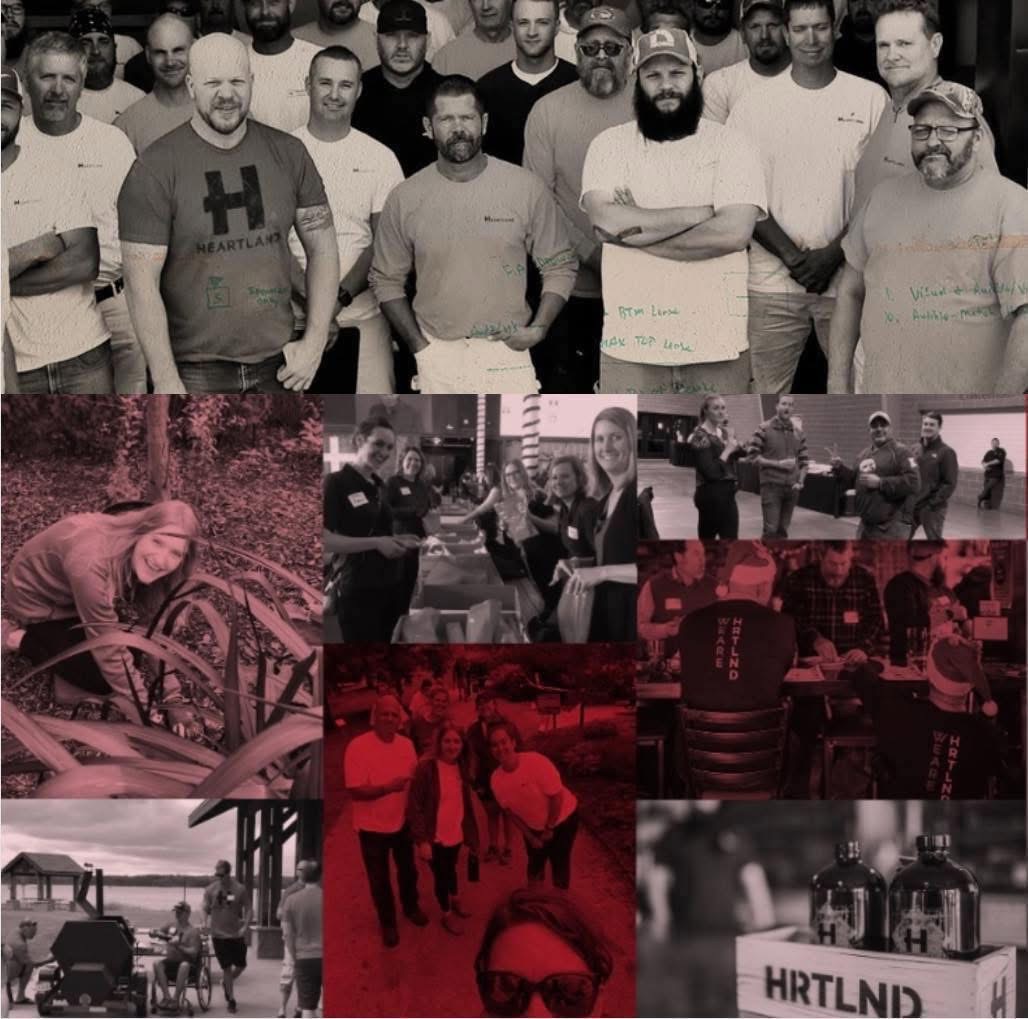
According to CEO Scott Bleich, HRTLND Companies chose to become an ESOP to preserve its core values, reward its team, ensure long-term stability, and create a purposeful succession plan that keeps the company rooted in Iowa and owned by the people who help build it every day.
We believe employee ownership will redefine the future of work in construction and beyond by creating a culture of accountability, pride, and shared success—where every team member is invested not just in doing the job, but in building the company.
Scott gives the following advice to leadership teams: to prepare employees for employee ownership, leadership must lead with transparency, educate consistently, and foster a culture where every team member understands their role as an owner in the company’s future.
Bob’s Red Mill
Bob Moore, founder of Bob’s Red Mill, shares how his Portland-based company transitioned to employee ownership through an ESOP
Video courtesy: The ESOP Association
Timberline Manufacturing
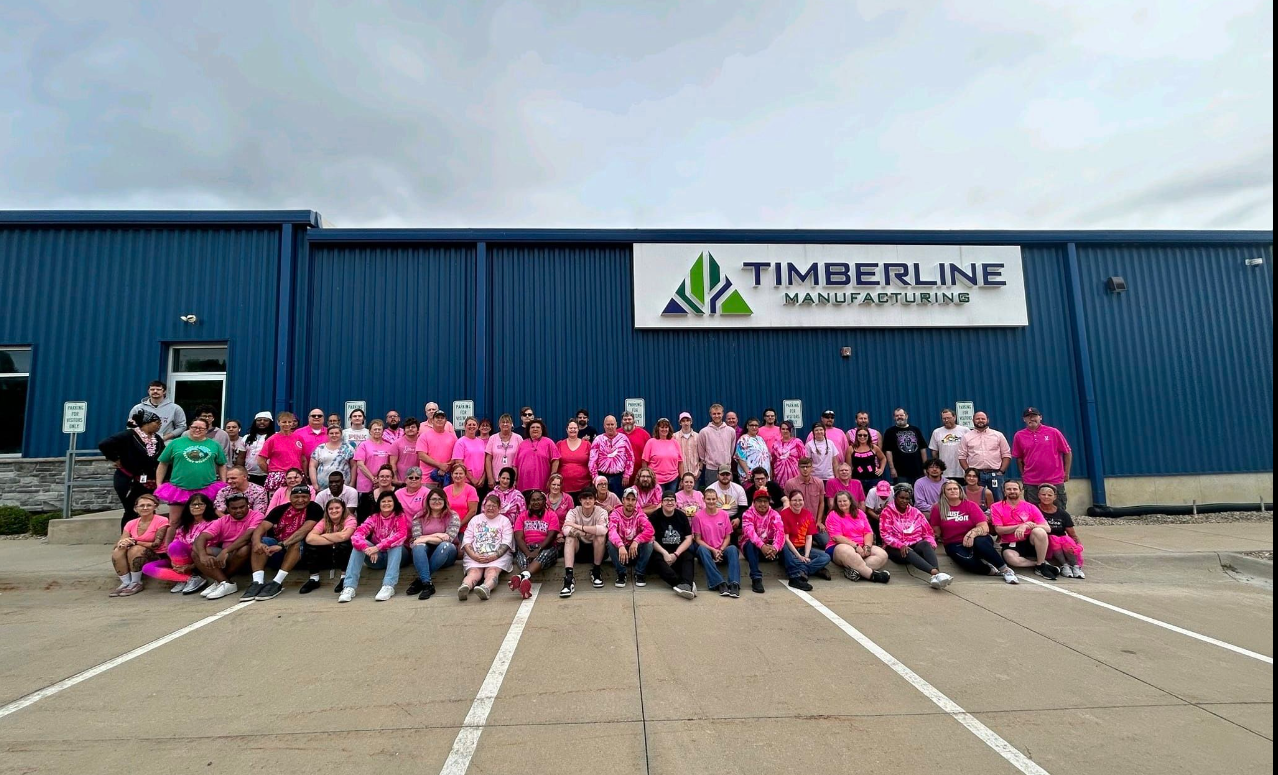 In 2012, Timberline made a significant shift by becoming a 100% employee-owned company. While there were multiple options to consider, the move was driven by the founders’ entrepreneurial spirit and desire to empower every member of the organization. In addition, they believed employee-ownership offered the best path to maintain the Timberline legacy and keep it a vital part of the community.
In 2012, Timberline made a significant shift by becoming a 100% employee-owned company. While there were multiple options to consider, the move was driven by the founders’ entrepreneurial spirit and desire to empower every member of the organization. In addition, they believed employee-ownership offered the best path to maintain the Timberline legacy and keep it a vital part of the community.
Tom Pientok, President and CEO says, “The sense of ownership fosters a culture of trust, collaboration, and commitment to excellence. Once people understand the power of employee-ownership and begin to act like owners, there is a pretty steady, upward trajectory."
“There is something very powerful in employee-owners having a vested, financial interest in what they do. Employee-owners know what they do makes a difference for their company, for their customers and for themselves. Statistics show employee-owned companies are more productive and often have a greater level of customer satisfaction. If a company is more productive, it can be more competitive and therefore, drive sustained, long-term growth.”
According to Mr. Pientock, there are some key lessons they learned during the transition to employee ownership. “Employee-ownership does not create a great culture. Rather, employee-ownership is an amazing tool to help foster and develop a great culture that non-employee-owned companies do not have available to them. Employee-owned companies still require leadership to foster and nurture the culture."
“Regardless of how much education you provide, it is never enough. First, employee-ownership is mostly an unknown to the employees who are with the company at the time of the transition. Then, as time goes on, new employees enter the workforce so they need to be educated on employee-ownership. While it takes time, most people will ultimately get employee-ownership, however it is also a reality that some people will never get it."
“When deciding to become an ESOP or employee-owned business, companies must determine if the culture of the company is right and ready for employee-ownership.”
One final piece of advice offered by Mr. Pientok is that "while employee-ownership is amazing, the benefits don’t just happen. It takes work, commitment and engagement. It takes leadership effort to build the ownership culture. The effort is required not only at the onset, but every day moving forward.”
LBS
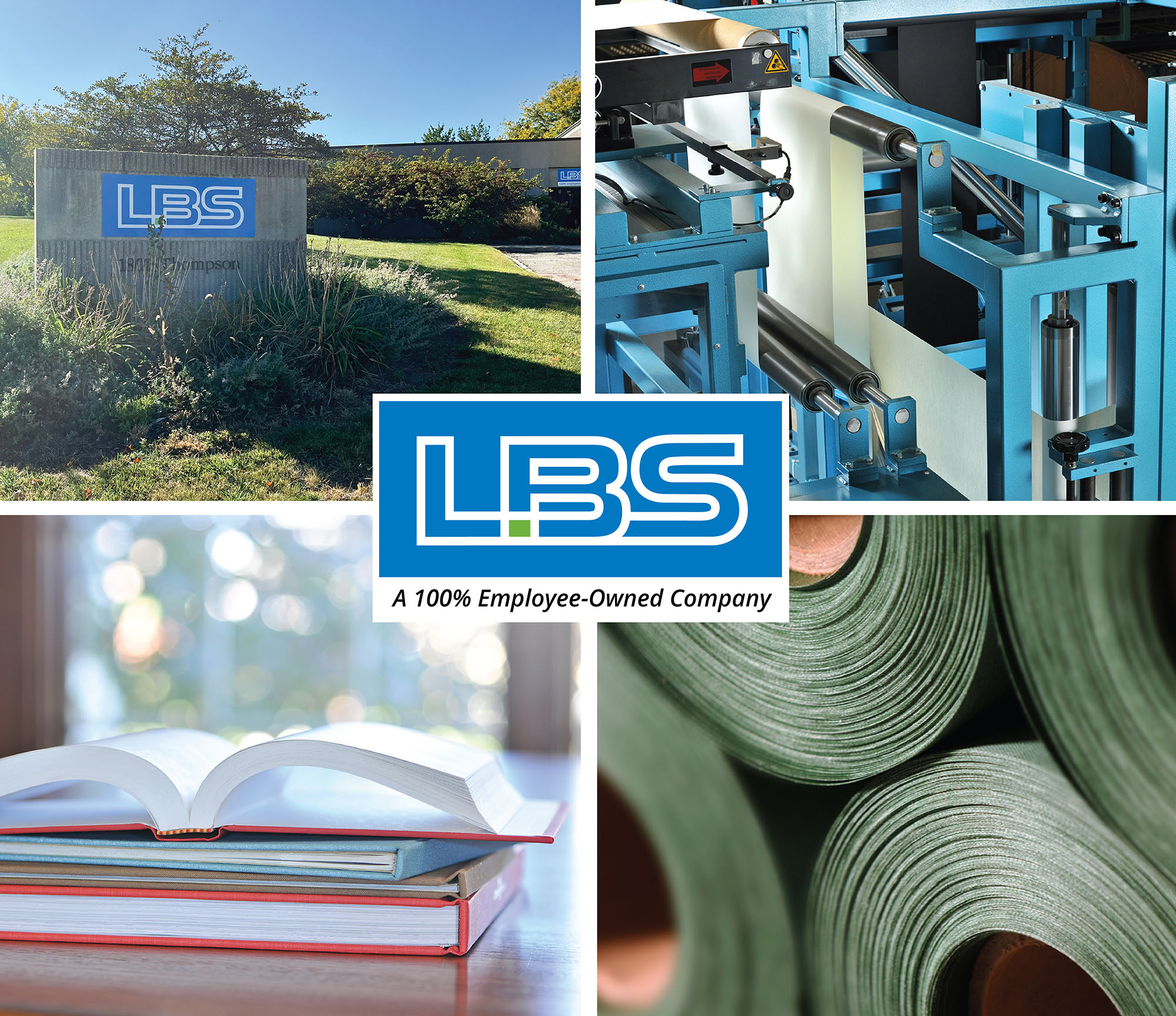
Julie Hulsebus, an employee-owner at LBS, shares that the transition to a 100% employee-owned company has brought significant benefits, such as wealth-building opportunities and fostering a stronger ownership mindset among employees.
LBS, founded in 1921, had been family-owned and operated on the East side of Des Moines, IA, for over 90 years when Fritz James, who owned and led LBS for over 35 years, began to develop his succession plan. He carefully reviewed many different possibilities and finally decided that the best solution with the most positive outcome for all was to sell the company to its employees in an Employee Stock Ownership Plan (ESOP). LBS’s ESOP, established on October 31, 2014, allowed our company to remain in Des Moines, retain our jobs, and continue growing while preserving our original company culture. It also ensured that the legacy that Mr. James and his family had built continued.
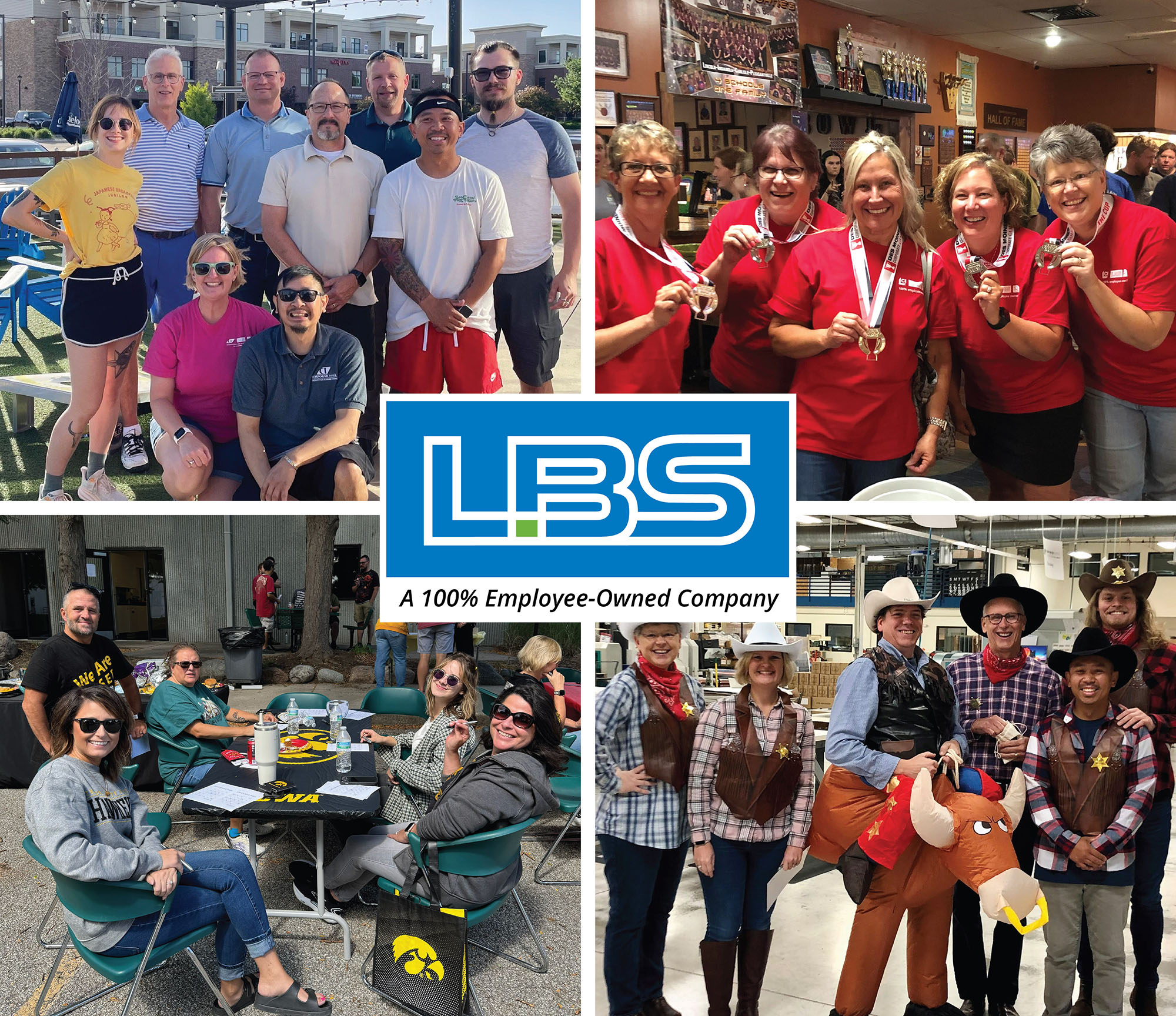
When LBS made the transition from a family-owned company to a 100% employee-owned company, we learned that it takes time to really grasp the many benefits an ESOP provides to its employees. On the one hand, you can think of the wealth building benefit. Not only does it take time to accumulate enough company shares to build a significant balance, but depending on the vesting schedule, it also takes time to obtain true ownership of those allocated shares in one’s account. However, the wealth building aspect is quicker and easier to communicate than the anticipated development of an ownership mindset. Encouraging employees to think and act like owners requires coaching, transparency, and clear expectations and guardrails. In the long run, any ESOP will benefit from employee owners that feel empowered to suggest improvements and any employee-owner should feel the reward from their daily contributions to their company. A great way to keep employee owners engaged is to celebrate their wins, celebrate Employee Ownership Month, and celebrate the annual stock price reveal!
Rayser Holdings
As Rayser Holdings celebrates 20 years of being 100% employee-owned, the pride shown by Chief Operating Officer and Employee Owner, Angie Hoover is clear. She speaks about how employee ownership has been a driving force behind the company’s growth, creating a culture of accountability and shared success.
“Rayser Holdings became 100% employee-owned twenty years ago when our visionary founder, Ray Buser, sought to reward and recognize the dedicated employees who helped build the company. From our roots in patient care, it was the collective commitment of pharmacists, nurses, and customer care representatives that propelled our success. Ray understood early on that the real value of the company came from its people. His forward-thinking decision to embrace employee ownership was not just about the company’s future—it was about honoring those who made it all possible. We’re incredibly grateful for his leadership and commitment to employee ownership."
"Our journey to employee ownership has been full of learning, and we’re still growing. One important lesson is that the benefits and principles of employee ownership aren’t always instantly clear to everyone—it’s a process that requires patience, ongoing education, and engagement. Not every employee owner grasps the concept at the same pace, and that’s okay. What’s key is maintaining transparency, fostering open communication, and continually offering the resources and information employees need. At the end of the day, our goal is for every employee to take ownership of their role with accountability, care, and initiative, as we work toward shared success."
"Transitioning to an employee-owned structure is more than a one-time event—it’s a cultural shift that takes time and attention. Leaders need to be prepared for ongoing education and support. Simply throwing a celebration or offering incentives won’t cultivate the ownership mindset. It’s about creating a culture of listening, understanding where employees are in their journey, and providing them with the knowledge and tools they need to thrive as owners. Patience, consistency, and communication are key to making employee ownership a meaningful and rewarding experience for everyone.”
VGM Group Inc.
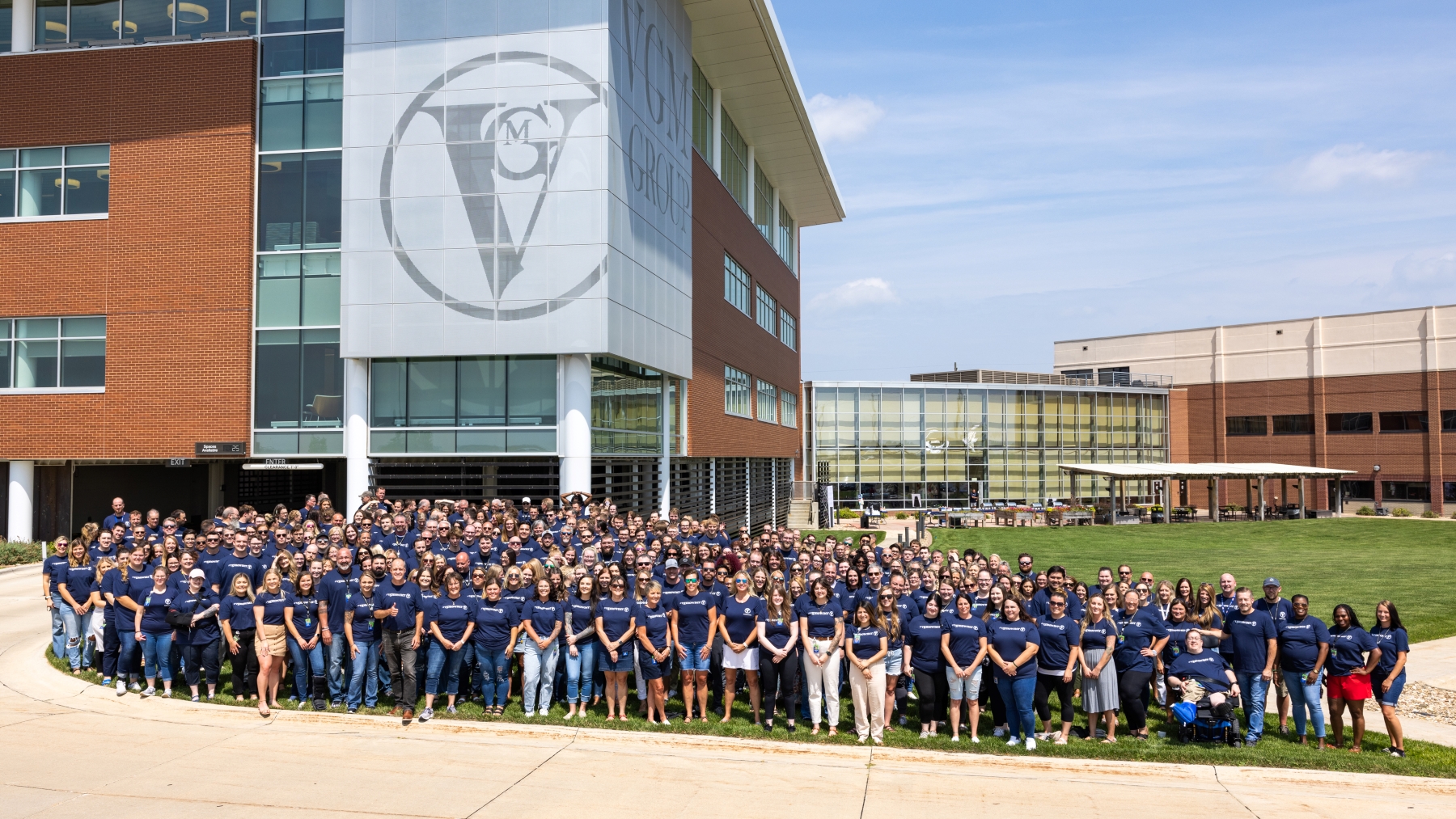 According to Mike Mallaro, VGM Group, Inc., Chairman of the Board, employee ownership is a central part of the company’s culture, driving employee engagement and customer service.
According to Mike Mallaro, VGM Group, Inc., Chairman of the Board, employee ownership is a central part of the company’s culture, driving employee engagement and customer service.
“Employee ownership sits at the center of our culture. Its direct impact on employee engagement - most VGM employees think and act as owners - leads us to better serve our customers, which leads to superior results."
"The decision by our founders to sell to an ESOP in 2008 was a huge win-win-win. The founders got paid very well for their business while also being able to stay in leadership roles for many more years. More than 1,000 employees earned life-changing wealth over time. And our community thrived as it kept a major employer and all the jobs that go with it.”
Morning Bell Coffee Roasters
In this insightful reflection on employee ownership, Nadav Mer emphasizes that the foundation of a successful transition to employee ownership lies in building a culture of trust and transparency.
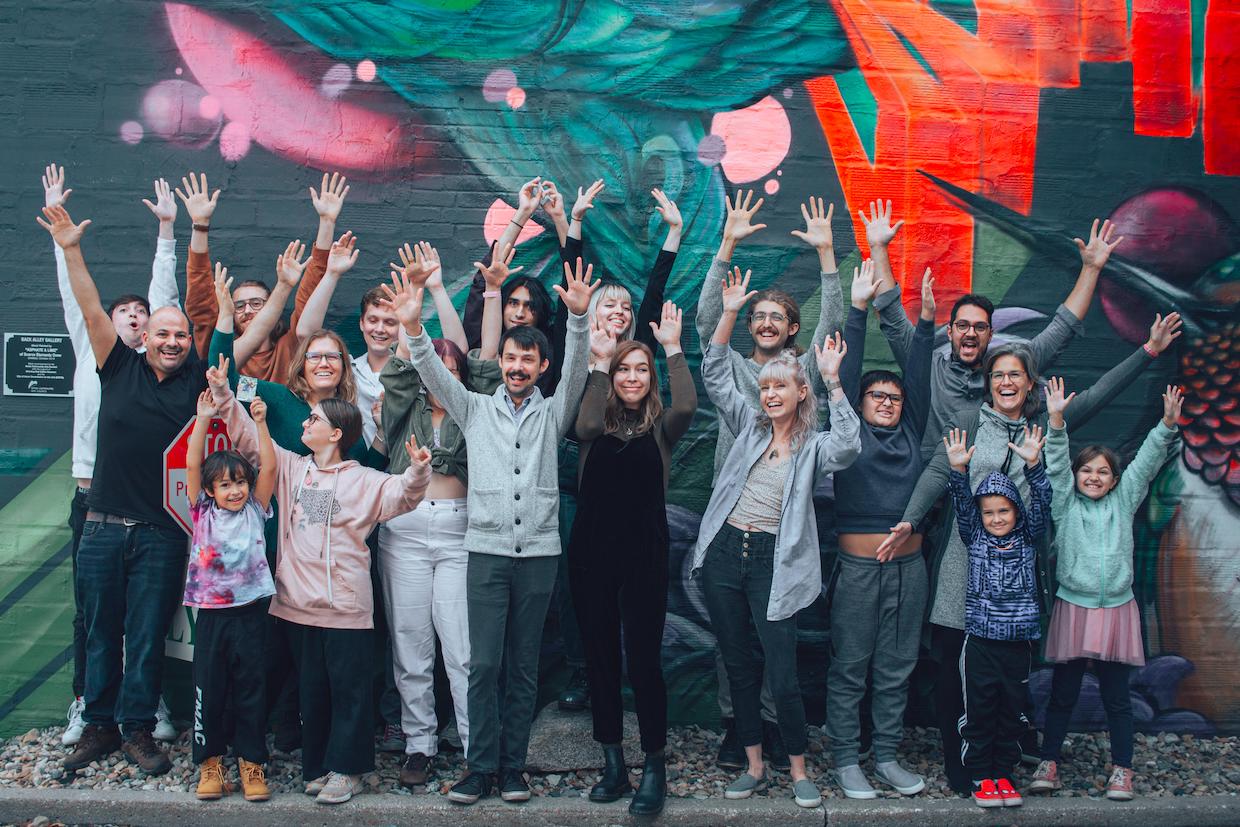
“Employee ownership is the most hopeful and optimistic model I have found yet that ensures thriving people and companies."
"Companies need to build a culture of trust and love with their employees as a baseline for even being able to start the conversation about employee ownership. For example, at our shop, years before we ever dreamed about an employee ownership transition, all employees had the keys to the shop and were trusted with tremendous responsibility. Owning these cultural practices and artifacts made employee ownership possible."
"Companies interested in employee ownership should discuss it openly with each employee to make sure everyone has clarity on the pros and cons. Several employees at our shop were worried about personal financial liability for example, which is a non-issue for employee owners. Also, you must give this discussion lots of time for everyone to digest the ramifications. One year is a good rule in my experience assuming you have the right cultural elements in place.”



